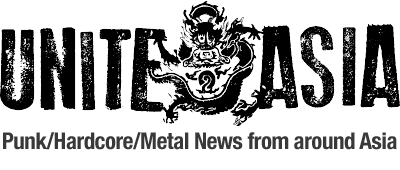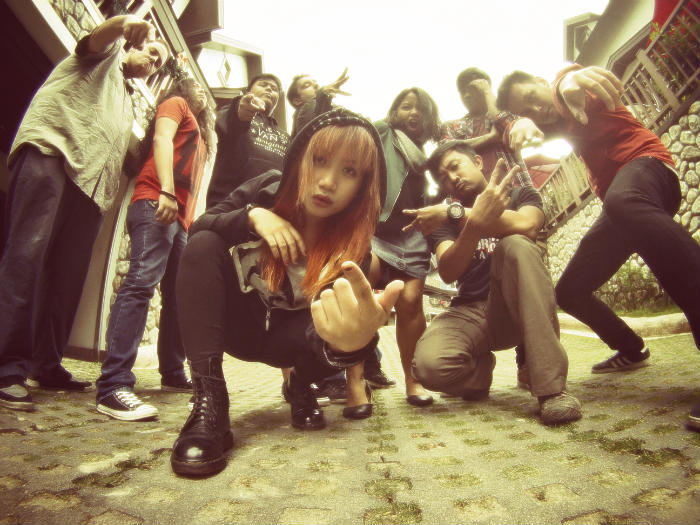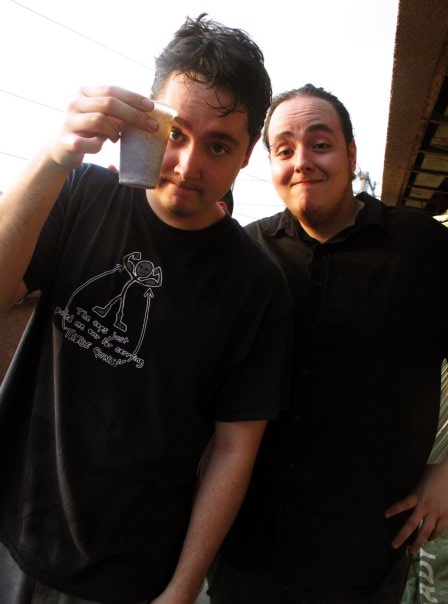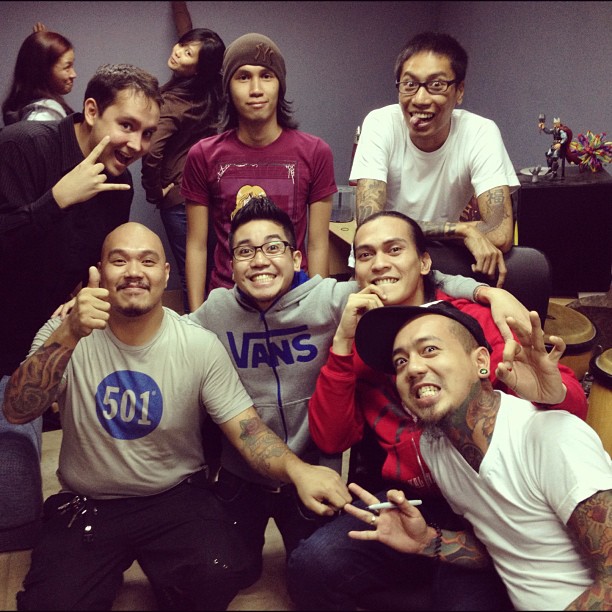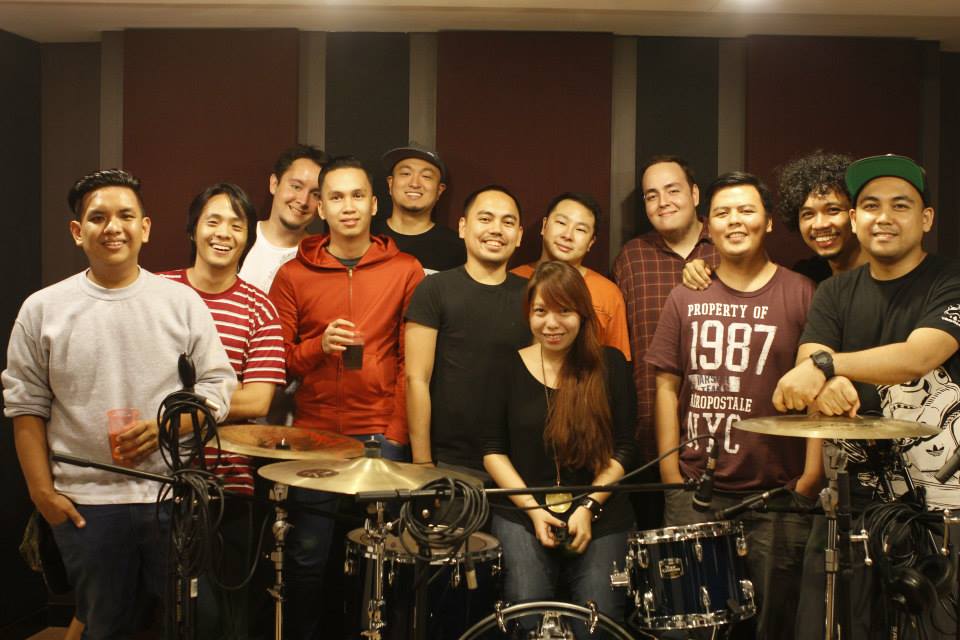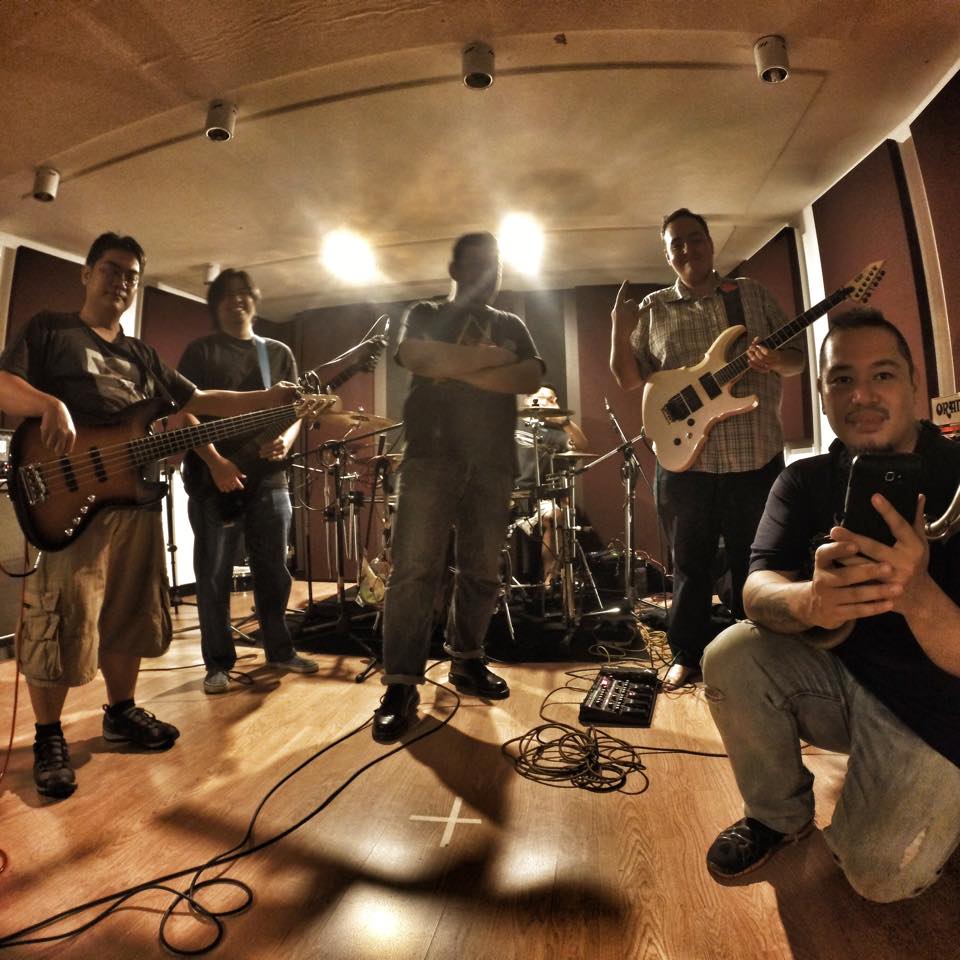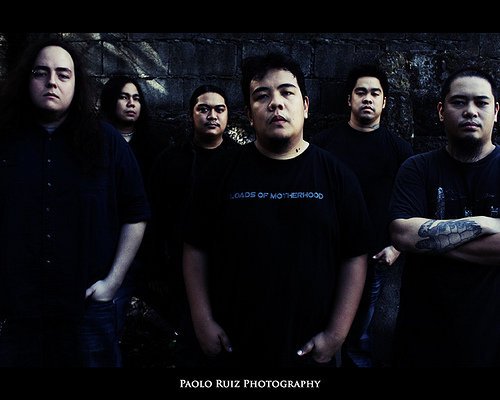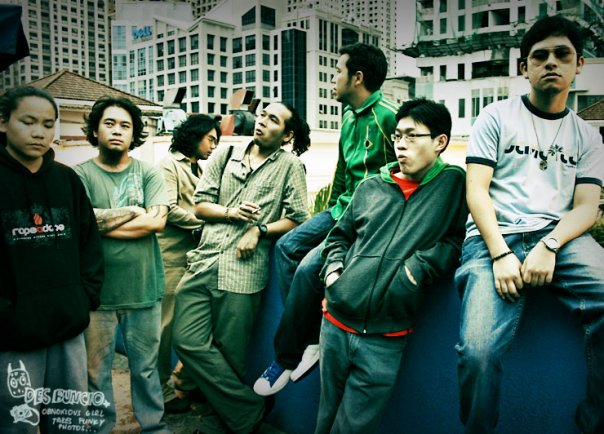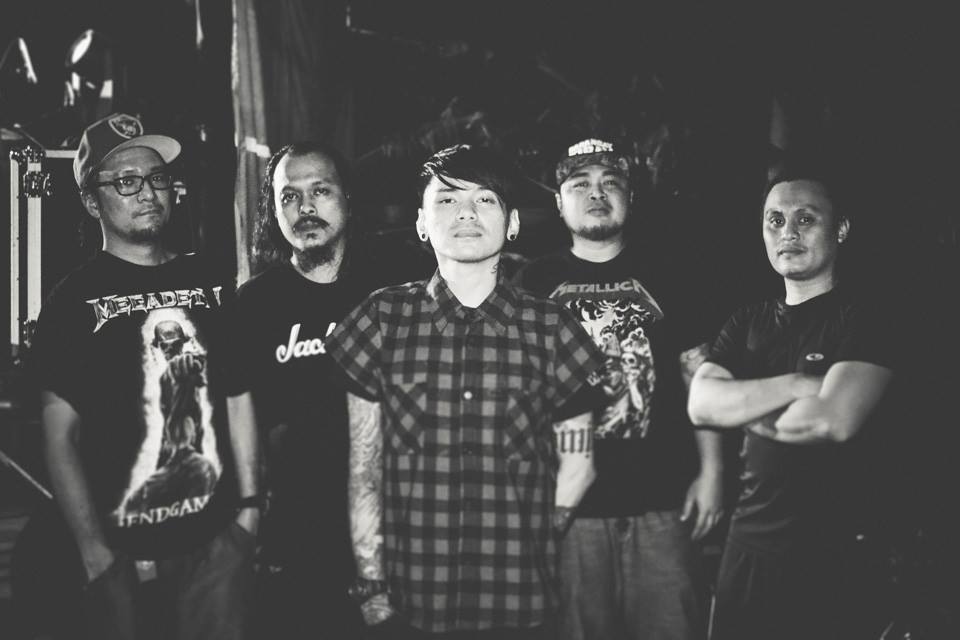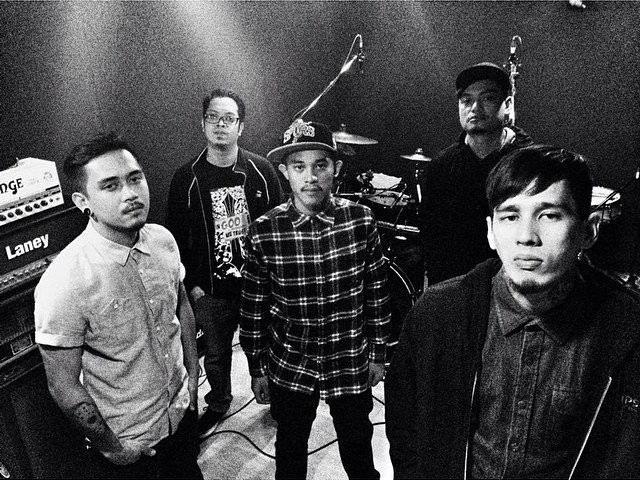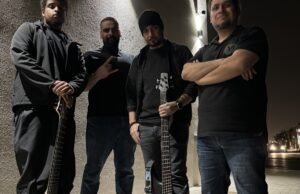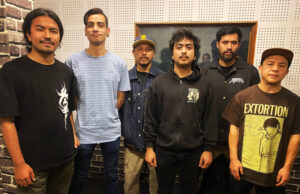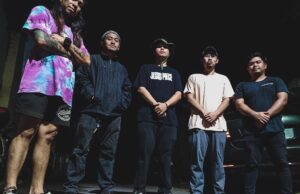INTERVIEW: Philippines’ premier recording studio TOWER OF DOOM
By Unite Asia on March 9, 2016@uniteasiaINTERVIEW | Tower of Doom
FROM | Philippines
http://towerofdoom.net
Very rarely do we launch an interview with a music video. But today is no ordinary day and this is no ordinary interview. In the past 17 years of playing in a band called King Ly Chee that from our inception have always made it a point to get “out there” to find out what Asia is truly made up of, there have been certain “names” that always pop up on our Asian heavy music radar. One of those names has become legendary to me now, a certain group doing heavy music proud the world over, Tower of Doom out of the Philippines. The reason we chose to launch with a music video is because Tower of Doom is not just a record label, but most importantly a recording studio that puts out some of the highest quality heavy music recordings coming out of the Philippines. The band above called COG, featuring Tower Of Doom’s own Eric, can certainly write a killer tune – but check out the production on it.
It is a huge honor that we had both the masterminds behind Tower Of Doom – brothers Carlo and Eric Perlas – take the time out to send in some answers so we can get some background on Tower of Doom. Little did I know that they were not only going to send in answers, but provide such well thought out responses to allow us a chance to really get into the psyche of the current state of metal/heavy music in the Philippines.
This is one of the most informative pieces we’ve got up on our site currently!
Enjoy!
Huge thanks to both Carlo and Eric for taking the time do this for our little site!
Peace,
UniteAsia.org
To those who don’t know of Tower of Doom – could you do a quick introduction to what you guys are and what you’re all about?
CARLO: When Eric first started Tower of Doom back in 2002, it was actually part of his college thesis, which was about the viability of home recording and whether DIY studios could compete with professional recording establishments.
After graduation, he continued his fascination with audio production by recording his own band COG, as well as the bands of some college friends. At the time it was all super ghetto: recording vocals in a tiled bathroom, tracking guitars by the TV and Playstation, turning a mattress up a against a wall to help absorb reverb, and more.
Some of the ideas above may sound pretty dumb by todays instant-expert standards but its probably important to mention that all this happened in a time before YouTube even existed. There wasnt anything like recording or mixing tutorials, DAW plugin tips, audio product reviews or anything like that. And there certainly wasnt a Philippine ISP that could handle online video at the time. Most advice had to be dug out of old recording forums, resource sites, old magazine interviews of producers and engineers, etc.
After a few years of trial and error and old school internet research, Eric was finally able to get enough buzz going around about TOD to open his first treated recording studio. He shopped around the idea with family and friends and was able to collect some old equipment and some capital to finally build an actual acoustic recording space. This time it had real acoustic treatment on the walls so it was definitely an upgrade!
“Some of the ideas above may sound pretty dumb by todays instant-expert standards but its probably important to mention that all this happened in a time before YouTube even existed.”
We got a lot of big breaks working at this first studio through friends and some well-known personalities in the local rock music scene. Quesos Ocho Toleran helped convince acts like Franco, Kamikazee and even his own band to take a shot on this random white boy whose studio was hidden behind a sari-sari store. Chicosci knew Eric from back in college and they also eventually found their way to that small studio space as well.
It was around this time that we decided to expand the company from a recording studio to an independent label. We started to find ourselves amidst all this great music but for most of these artists, especially the independent acts, there was just no hope of getting their music out on a major label and into stores. They had no way of pressing or distributing CDs and we just thought it was such a waste, recording all this music that no one would ever get a chance to hear.
Eric started sifting around through some contacts he had made and was able to nab a few meetings with some of the major labels in town. After tons of persistence and a bit of random luck, he was able to put together a distribution deal that got our CDs in stores. This was when I officially joined the team and we went on a signing spree, snatching up like 9 bands which formed the first official Tower of Doom lineup: April Morning Skies, Bloodshedd, Boy Elroy, COG, Imbue No Kudos, Out of Body Special, Plane Divides the Sky, Sin, and Valley of Chrome.
For a few years, we were pretty busy as a label, recording in-house bands, pressing and selling CDs, and promoting the artists through music videos, radio spots, and our two Siege Tours which toured them around the country. As time passed though, it was really hard to maintain, because Tower was basically me, Eric, and our friend Arlo, trying to manage, record, and promote 9 different artists ranging from punk rock to metal to hip-hop.
Its probably important to point out that working in the recording industry is actually quite different than mixing and producing music with bands. There was nowhere to get any formal training or guidance whatsoever, particularly for running an independent rock and metal label. To make things worse, the internet connection speed in the Philippines finally caught up a bit and digital music-sharing and piracy delivered a devastating blow to some of our main income streams.
“To make things worse, the internet connection speed in the Philippines finally caught up a bit and digital music-sharing and piracy delivered a devastating blow to some of our main income streams.”
In 2009, we closed the old studio and moved to our current spot, where we expanded our facility to 2 recording studios, and a video production room. Though the music marketing side of TOD was floundering, the actual recording studio side of our business had only grown due to all of the band promotion we had done over the years. We got swamped with business recording albums for indie bands, major label bands, and doing a ton of advertising work.
In the years that followed, most of that original Tower of Doom roster either went their own way or disbanded. Some of the guys left us amicably and others didnt but we also had to adjust to survive and we made an active move to focus more on our core strengths which have always been producing audio and video.
We also made sure that even though we were way more busy servicing clients, we never let go of the companys passion for local music, which is why we got started doing efforts like Tower Sessions, Re/Amp, and Tower Radio. Nowadays we are primarily an audio/video production house that still acts as a mini-label (current lineup is Arcadia, COG, December Avenue, Lostthreads, and Valley of Chrome).
Beyond that we work really hard to try and create platforms that help empower other local artists of all backgrounds and genres, via our efforts on Tower Sessions, as well as our online store the DoomShop, which gives bands a means to make and sell their merch nationwide.
Okay so that was the super long answer and history, so Ill try to sum that all up in a shorter paragraph:
Tower of Doom is a recording studio and production house based in the Philippines that has had over 13 years of experience working for Filipino musicians. We believe Filipino music is some of the best in the world, and we do our best to produce and promote it both locally and worldwide. Were proud to say that weve made and sold thousands of CDs and band shirts for Filipino musicians, launched the Philippines first (and second) ever metal tour, and have produced videos that have been watched over 70 million times, all while being fuelled by nothing but cheap rum and sheer moxie haha. With any luck, this is just the beginning as we always push ourselves every year to try aiming for bigger and better goals to help push our local music scene.
I think it is amazing to see your start as more of DIY project and then seeing how in just a few short years you guys have established such a solid name as a recording facility. When did you guys then decide to make a record label and why?
CARLO: Shit, I really should have read all the questions before answering them haha. Well I guess I answered this in the long history above, but to summarize:
Thanks for the compliment man! Well since Eric was never formally trained in sound engineering, the very first bands he recorded were friends and guys he met while playing at shows. As time passed and he got better at recording, word of mouth got around and we met more and more musicians who needed help with their projects and he took every opportunity he could to bank more time in the studio..
Over the course of recording dozens of bands year after year, he got to see the wide range of talent in the local music scene, and we thought it was such a shame that Eric and the bands would spend countless hours recording, mixing, and mastering these albums, only to have them sit unreleased because no major labels here in the Philippines would touch metal with a ten-foot pole. So rather than let all that hard work go to waste, we decided to make our own label, and get these CDs in stores ourselves.
It was a hard road to be sure, and would probably be even more impossible nowadays, but we started the label right before CD sales crashed entirely, so we got lucky enough to strike a deal with Galaxy Records. They let us sign whoever we wanted, and distributed our CDs nationwide, which seemed like an awesome deal at the time. Of course all the recording cost, production expenses, and marketing pretty much had to come from our end, but just getting these obscure metal CDs in stores felt like such a victory at the time, and really started us down the path were on today.
Tell us a little bit about the Tower Sessions videos? How did you get the idea?
CARLO: Tower Sessions came at a weird time in the companys history. In 2009, we closed the first studio so that we could move and expand into our current spot. However, we ran into problems with the construction, which left the studio and label pretty much closed for a year or two. To make matters worse, I had to take a leave for a year or so to finish up my degree, so Tower of Doom was basically non-operational for all that time.
When I got back in 2011, we had two recording studios (with Eric running one and Macoy Manuel, previously of Earbender Studios and Sin, engineering the second), an in-house video editor (Boogs San Juan), but a lot of people thought Tower of Doom had actually closed for good after two years of virtually no activity. So initially Tower Sessions was my idea of letting people know that Tower of Doom was still alive, while also showcasing our new engineer and our video production capabilities.
While Tower Sessions was started in large part as a way for us to market the studio, we also designed the show to encourage and support the Filipino music scene. Thats why for every season, we try our best to mix it up between both major and indie artists, so bands can use the show as a platform for their own music marketing efforts, while also exposing our audience to tons of new musicians they may never have heard of.
What has been the reception like to these videos and when are new ones going up?
CARLO: The reception to the videos has been way bigger than we ever imagined back when we first started the show. One of our favorite pastimes is actually reading the comments, especially the trolls, because theyre always such entertaining dicks hahaha. But for bands who arent used to all the comments, we always remind them that you can read 10 positive messages telling you how much they like your music, then encounter one shitty comment, and you instantly forget all the good and focus on the bad. So its important not to let the haters bring you down.
Its been a while since we shot and released brand new episodes (weve been putting out off-season episodes, which are secondary songs that were recorded from past seasons). This is partially because every Tower Sessions episode is done completely out of heart we dont ask the bands to pay, and we turn down countless offers from bands who want to pay to get on the show, so every episode costs us a big chunk of cash in terms of renting equipment, hiring camera operators, feeding and boozing up the guests, and hundreds and hundreds of man hours spent shooting, recording, editing, mixing, and mastering to bring the episodes to a point where were okay to put them out. No other project gets as much time and attention, so its really hard to juggle the Sessions with normal client work, which is why we had to take a break after the third season.
The good news however, is that Tower Sessions is coming back this year! Were currently in the planning stages, and need to find a way to pick 20 out of the huge number of possible bands that we can feature this year. So for fans of Tower Sessions, just stay tuned and hopefully well be able to start rolling out the new episodes later this year.
Clearly you guys have a penchant for, and steer closer to, heavy music – what is your own personal background with heavy music?
CARLO: Well Ill let Eric answer this one, as Im the suit of the company, and am thus the official sell-out. I would try to answer, but Id probably just embarrass myself and piss off you and your readers so Ill just move on to the next question hehe.
ERIC: Well, Ive noticed growing up in the Philippines that most Filipino metalheads are super huge thrash fans in general. Metallica, Megadeth, Testament and Slayer in particular I dont really know why that is hehe. Growing up, I was always more of a fan of the mainstream metal scene. I loved listening to Fear Factory, Pantera, Korn, Machine Head, Dream Theater, Nine Inch Nails etc. so thats where I got started for sure. That being said though, once I started getting into Far Beyond Driven I just started noticing my tastes getting heavier and heavier haha.
Back when we were starting out with COG we would listen to all sorts of metal bands but some of my favorites were probably Archenemy, Meshuggah, Decapitated, Burnt By The Sun, Lamb of God and In Flames. In more recent years, I loved listening to bands like Veil of Maya (Id-era), The Faceless, Code Orange Kids, Architects, Misery Signals, Baroness, Periphery among others, but nowadays music is so much a part of my day-to-day duties that it is hard to get caught up in the buzz with newer releases.
To be honest though, I am not really keen on listening to music unless it has something to do with work these days. I can spend anywhere from 8-15 hours a day listening and analyzing mixes in the studio so its actually nice to have some silence on the way home sometimes haha.
One thing I think I should mention is that my first taste of any kind of music promotion came from an old metal night Yagi (COG vocalist) and I started out a long time ago. It was called Disnormal Night and it was held every 2nd or 3rd Tuesday of the month and it was our first time to ever try to network with bands in the local metal scene. We were just starting out all those years ago and we were just so tired of being bumped off by bigger bands and just having no control over our efforts at local events. So we decided to try our luck by creating our own.
“We were just starting out all those years ago and we were just so tired of being bumped off by bigger bands…”
Our good friend (and then pseudo-manager) Ibarra had a contact at the local legendary hole-in-the-wall band venue, Mayrics, and he somehow finagled a monthly slot for us. We were nobodies and we needed to meet other bands and figure out what else we could do to get our music out there. So we started our small little event and started inviting all sorts of metal bands to play. We made an effort to get both newer metal bands and much older, established acts and create as eclectic a lineup as we could. For each night we would print out a small booklet for people at the venue with write ups about each of the bands that were playing that evening, with information on their members, where they were from and how to contact them.
We were so wet behind the ears that we were inviting bands that had had huge fallouts with each other to play on the same bill and we were pissing people off because we couldnt get the scene politics right. But as far as we knew, we didnt even have a scene to begin with hahaha so it just didnt make sense to us how all these great bands could spend all their time fighting with each other in the first place.
We didnt care about the politics or issues these bands had with each other–hell, we didnt even know about the issues! All that mattered to us was that we finally had a real place to share our music with other heavy music fans in our scene and that was enough. Finally, we didnt have to wait all night just to be bumped to the last slot by some big name group.
I only mention this at all because there are so few bands nowadays who are willing to think out of the box to create opportunities for themselves. Things are so much easier to learn and master nowadays with Google and YouTube literally letting the entire world copy their answers. Bands have all these great tools at their disposal, all for free, but for some reason so few are capitalizing on it.
When did you guys decide to go a little outside of that world to record other artists? Was that a difficult transition?
CARLO: From the very start of the label, we were always open to other bands, which can be seen by the fact that our original lineup was almost entirely punk, rock and metal, save for Out of Body Special, our sole hip-hop/R&B group haha. Eric and I both have really eclectic musical tastes, so weve been open to other genres ever since. Since Ive personally never sat behind the engineering board, Ill also let Eric field this one.
ERIC: Ive never ever been too picky with studio projects. Ive worked on everything from brutal death metal to reggae and dancehall to manufactured all-girl pop dance groups. Throughout my career as a music producer Ive always made an effort to NOT discriminate against projects due to music genre or my own personal tastes. I work on music that I would never have enjoyed on my own all the time.
I’m sure in the over decade plus history of Tower of Doom, you must’ve gotten hit up by a million bands, some of them hands down have to be absolutely turds. To newer bands who are trying to hook up that “deal” – what are some tips and advice?
CARLO: Well we dont really sign artists like we used to, but Ill try to give some advice, cliché as it might be: Be original. Or at least try to be. Of course everyone has their influences, and its almost impossible to create music that is completely original, but it seems like a lot of artists dont even try. Nobody wants to hear a worse version of an already famous band.
Also, it might help to stop caring what other people in your scene say or think about you. Sometimes groups seem to act like high school cliques, with these super elitist groups that have hard and strict rules about what does and doesnt pass as music. This is metal, no hooks or melodies allowed. Fuck that, if you love blastbeats and want to work in a harp, go do your own thing. Unless of course it sounds like garbage hahaha.
ERIC: Do the legwork. Get out there, promote your art and your craft, work hard and never take no for an answer. Chances are if youve done a good job of that well be the ones calling you!
“Nobody wants to hear a worse version of an already famous band.”
In this day of the internet where bands are really finally able to be in charge of steering their own ship because of all the direct to consumer means that are all available to us (big cartel, bandcamp, Facebook, etc), what role do you think record labels play in this day in age?
CARLO: Honestly, I think record labels as they have been classically recognized, are at a stage where they need to evolve or die out, leaving only a powerful remaining few. The historical role of major labels has generally been the following:
- Discover and develop the artist
- Ensure their music is recorded, arranged, and produced properly
- Distribute the music in all channels in which it can earn
- Promote the artist to grow its market
Nowadays, artists develop their followings online and through word of mouth. They also have the means to record themselves without breaking the bank, and can distribute it online. So most of the roles of labels have been made redundant, and their main benefit would come in being able to finance professional recording and promotion. Unfortunately, many labels have trouble doing that as well, since CD sales have plummeted so thoroughly, so they dont have the financial juice they used to.
However, the big players worldwide are a different story. Their machinery is so deeply embedded that they will probably find ways to adjust and thrive because the formula is just really strong. When you can hire the worlds best songwriters, have talent scouts to get you the prettiest faces that can sing, have teams of marketers and PR reps to build images, and also own the channels everyone uses to promote, thats a pretty unbeatable combination. For the rest of us small fish though, its nice to know that the whole freedom of the internet has made it much more possible to rise up, for those that are willing to put in the work.
In terms of recording, what are some tips for bands who want to come into your facility and ANY facility for the matter?
CARLO: Above all practice. I cant even count how many bands weve encountered who vastly overestimate their playing abilities. Its staggering to me how many people come into the studio, where they pay by the hour, and dont even know how to play their own songs.
Also, its absolutely critical that your drummer learns to play the song to a click track. Guys come in and expect to track a bunch of songs in one day, but if their drummer isnt used to playing to a click track or metronome, their timing will be all over the place. So the band wastes hours retracking drums, our engineers waste hours correcting all the mistakes, and thousands of bucks get wasted just to get the basic timing of the song right, and all of that waste is so avoidable.
Beyond that, one other tip is to know when to call it a day. When bands are in the studio, they want to push themselves and get their tracks down, which is great, but sometimes its just not your day. This is especially true for vocalists. Maybe your voice is a bit shot from last nights gig, or you have a bit of a cold, or whatever it may be, if its not working out, it might be best to reschedule. Nobody bats 100% every day, so recognizing when its time to push and when its time to take a break and regroup can save you a huge amount of time, money, and effort.
Well shit man, Im sorry for makin your eyes bleed with these huge responses but I wanted to do justice to all the questions, so feel free to edit me down hehe. Thanks again Riz, and let me know if you have any follow-ups or anything!
Featured
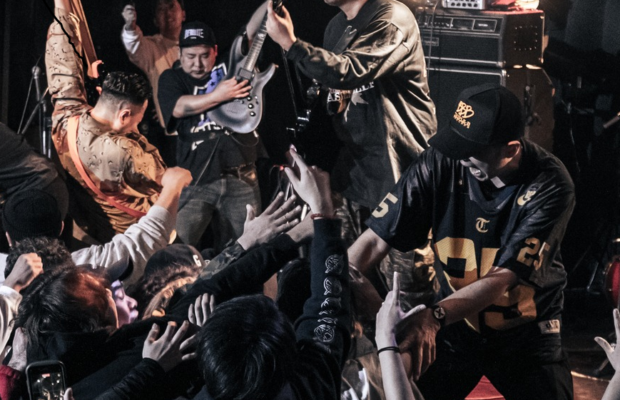
Japanese Hardcore Legends LOYAL TO THE GRAVE Make Massive Announcement
Unite Asia | April 6, 2024What a MASSIVE announcement by our fellas in Japanese hardcore legends LOYAL TO THE GRAVE. After 7 long years, the band has just announced a brand new 5 track...
Reviews
-
 Unite Asia | November 11, 2022
Unite Asia | November 11, 2022
REVIEW: Hong Kong Post-Hardcore Act Wellsaid Release Sophomore Album ‘Lurking’
-
 Unite Asia | April 3, 2022
Unite Asia | April 3, 2022
REVIEW: Hardcore Punk Act SPIT Release Self-Titled Debut Album [Taiwan]
-
 Unite Asia | August 31, 2021
Unite Asia | August 31, 2021
REVIEW: Melodic Death Metal Band Reborn Release EP [Vietnam]
-
 Unite Asia | August 4, 2021
Unite Asia | August 4, 2021
REVIEW: The Most Important Punk Rock Release of 2021 – The Rebel Riot [Myanmar]
-
 Unite Asia | June 15, 2021
Unite Asia | June 15, 2021
REVIEW: Metalcore Band Prompts’ ‘Magenta Smile’ Gets A Full Review [Japan]
-
Upcoming Releases
-
 Unite Asia | April 24, 2024
Unite Asia | April 24, 2024
Killer Punk Band NO GOOD Back With Sick New EP Feat. CHANGES/PIRI REIS [Malaysia]
-
 Unite Asia | April 20, 2024
Unite Asia | April 20, 2024
Tech Death Metal On 11 String Bass? IMPENDING ANNIHILATION Drop EP [Japan]
-
 Unite Asia | April 20, 2024
Unite Asia | April 20, 2024
-
 Unite Asia | April 16, 2024
Unite Asia | April 16, 2024
-
 Unite Asia | April 14, 2024
Unite Asia | April 14, 2024
Straight Edge Hardcore Band EXCESSIONS Release Debut EP [Malaysia]
-
Facebook
Recent Posts
-
 Unite Asia | April 24, 2024
Unite Asia | April 24, 2024
Killer Punk Band NO GOOD Back With Sick New EP Feat. CHANGES/PIRI REIS [Malaysia]
-
 Unite Asia | April 24, 2024
Unite Asia | April 24, 2024
Thrash Metal Outta Saudi Arabia – DUNE – Release New Lyric Video [Saudi Arabia]
-
 Unite Asia | April 22, 2024
Unite Asia | April 22, 2024
Newly Formed Hardcore Band SIX COFFINS Release SICK Fullset Live Video [Nepal]
-
 Unite Asia | April 22, 2024
Unite Asia | April 22, 2024
Hardcore Band TURNPIKE Release Heavy New Single ‘Blood4Blood’ [Philippines]
-
 Unite Asia | April 21, 2024
Unite Asia | April 21, 2024
Emotional Hardcore Band WEEP Release Music Video For New Single [Japan]
-
Sitemap
Latest Posts
-
 Unite Asia | April 24, 2024
Unite Asia | April 24, 2024
Killer Punk Band NO GOOD Back With Sick New EP Feat. CHANGES/PIRI REIS [Malaysia]
-
 Unite Asia | April 24, 2024
Unite Asia | April 24, 2024
Thrash Metal Outta Saudi Arabia – DUNE – Release New Lyric Video [Saudi Arabia]
-
 Unite Asia | April 22, 2024
Unite Asia | April 22, 2024
Newly Formed Hardcore Band SIX COFFINS Release SICK Fullset Live Video [Nepal]
-
 Unite Asia | April 22, 2024
Unite Asia | April 22, 2024
Hardcore Band TURNPIKE Release Heavy New Single ‘Blood4Blood’ [Philippines]
-
Categories
Featured hardcore Indonesia Japan metal Philippines female hardcore punk Malaysia Singapore metalcore Hong Kong punk rock punk pop punk Thailand China India death metal indie rock Korea grindcore emo Taiwan black metal Post hardcore Nepal melodic hardcore thrash metal post rock Vietnam metallic hardcore alt rock hardcore metal screamo deathcore beatdown emotive punk post punk math rock
Copyright © 2016 Unite Asia. Designed and powered by Breaking Bad Interactive Limited.

